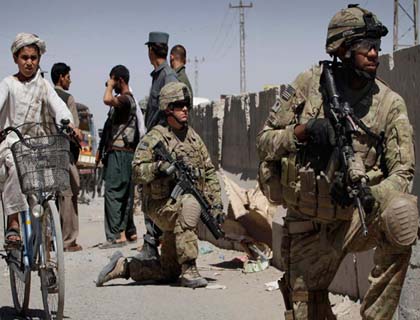WASHINGTON - The Afghan-US strategic partnership will send a clear signal to the world and the region that the United States will never abandon Afghanistan, a top Pentagon official has said.
The strategic partnership would frame the character of an enduring US-Afghan relationship, said Michael D. Lumpkin, acting assistant secretary of defense for special operations and low-intensity conflict.
Speaking at an event marking the first anniversary of the Ministry of Defense Advisors Program for Afghanistan on Friday, he said: "It will send a clear and reassuring signal to the region that Afghanistan will not be abandoned…
Organized in association with the US Institute of Peace, 17 volunteers were initially deployed to Kabul in July 2010, bringing broad expertise in their respective fields. Within six weeks, they had made such an immediate impact that then US commander Gen. David Petraeus requested 100 more.
"I want to emphasize that although our progress in Afghanistan is substantial and our strategy is on track, significant challenges remain. We have dislodged insurgents from key strongholds and we have improved security," Lumpkin said.
However, he acknowledged, much work was needed in the east, where the physical terrain, culture, geography and existence of safe havens in Pakistan presented a complex set of challenges -- distinct from those elsewhere in the country.
Only after Afghanistan's security institutions were self-sufficient and self-sustaining, the Afghan government would be able to solidify the tactical gains earned at great cost, he said.
The Pentagon official said America's objectives in Afghanistan remained unchanged -- to deny safe havens to Al Qaeda and to deny the insurgents the ability to overthrow the Afghan government.
He said the key to responsible Afghan-led transition was the presence and capability of 300,000-member strong and growing Afghan National Security Forces and the development of civilian-led security ministries that could sustain the forces.

